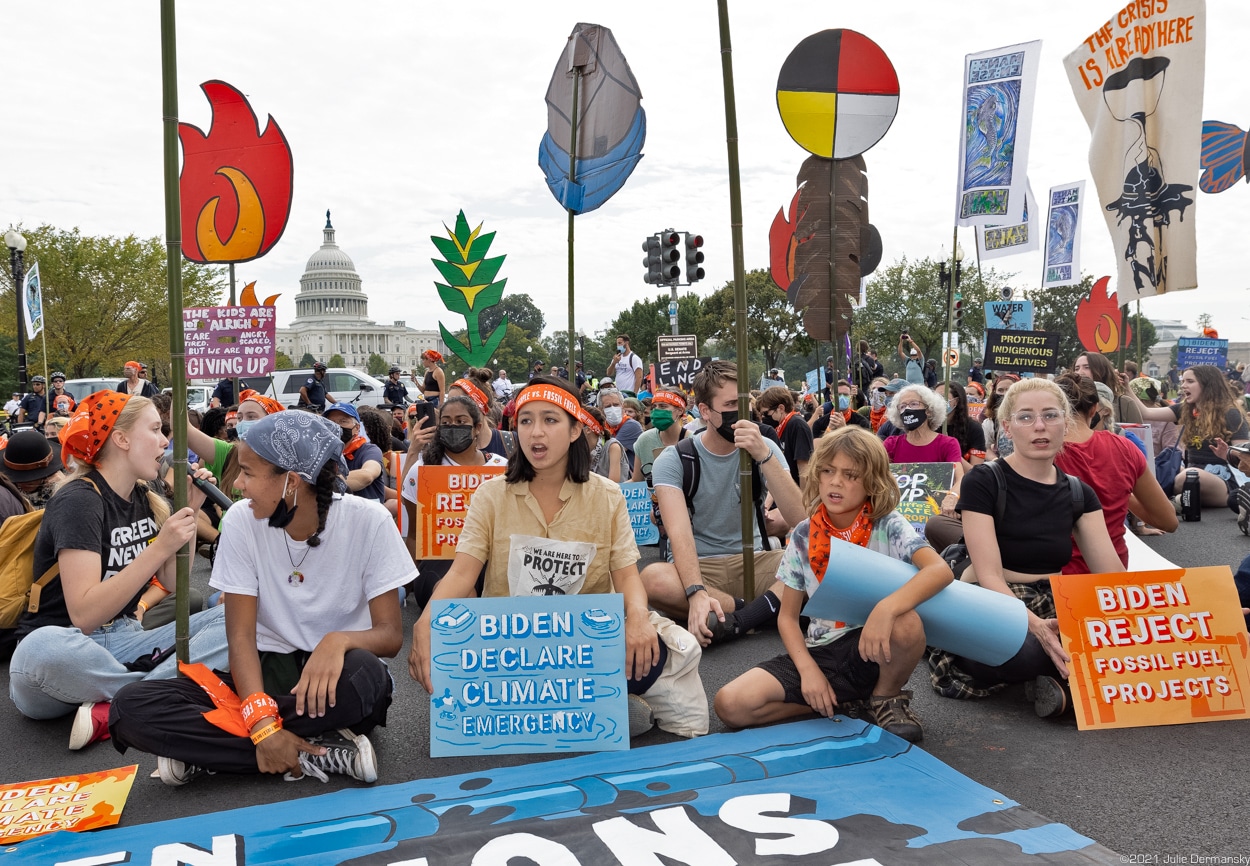As environmental advocates from across the United States converged in Washington, D.C. last week to take part in the five day “People vs. Fossil Fuels” action, President Biden’s infrastructure package remained stalled, in part, by West Virginia Senator Joe Manchin’s push to cut its largest climate measure.
The series of fossil fuel protests were organized by a coalition of over 25 environmental groups known as Build Back Fossil Free, a poke at Biden’s “Build Back Better” agenda. Indigenous leadership in the fight against fossil fuels was forefront at the rallies.
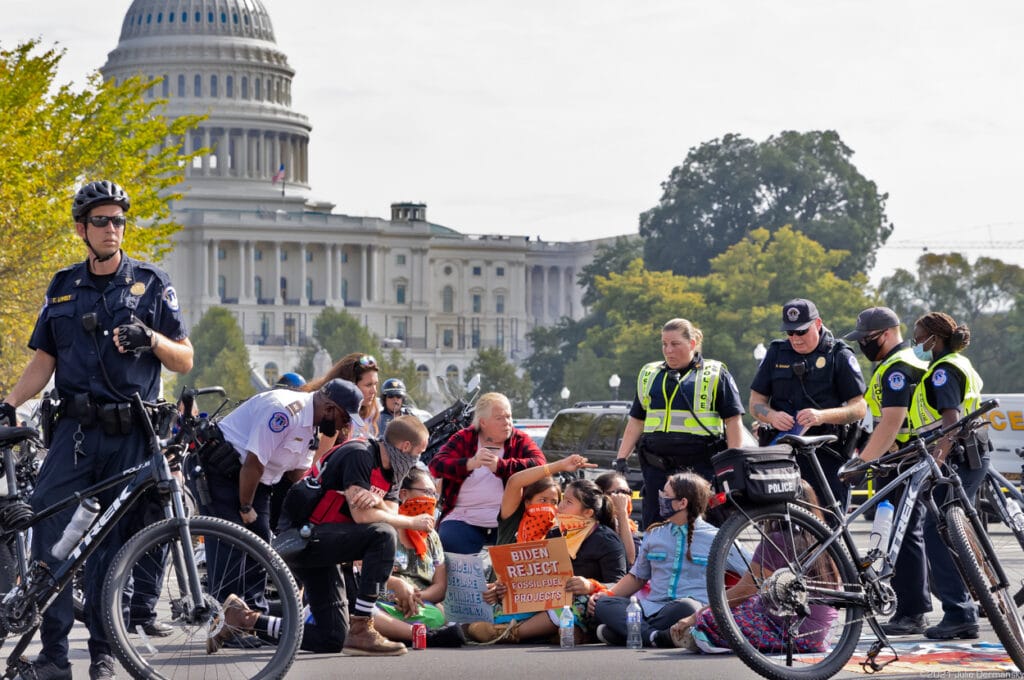

The week of protest included acts of civil disobedience leading to over 650 arrests. Most of the arrests took place in front of the White House, where sit-ins were held for four consecutive days. Others were arrested at the Department of Interior building, home to the Bureau of Indian Affairs (BIA), after holding a sit in inside on October 14.
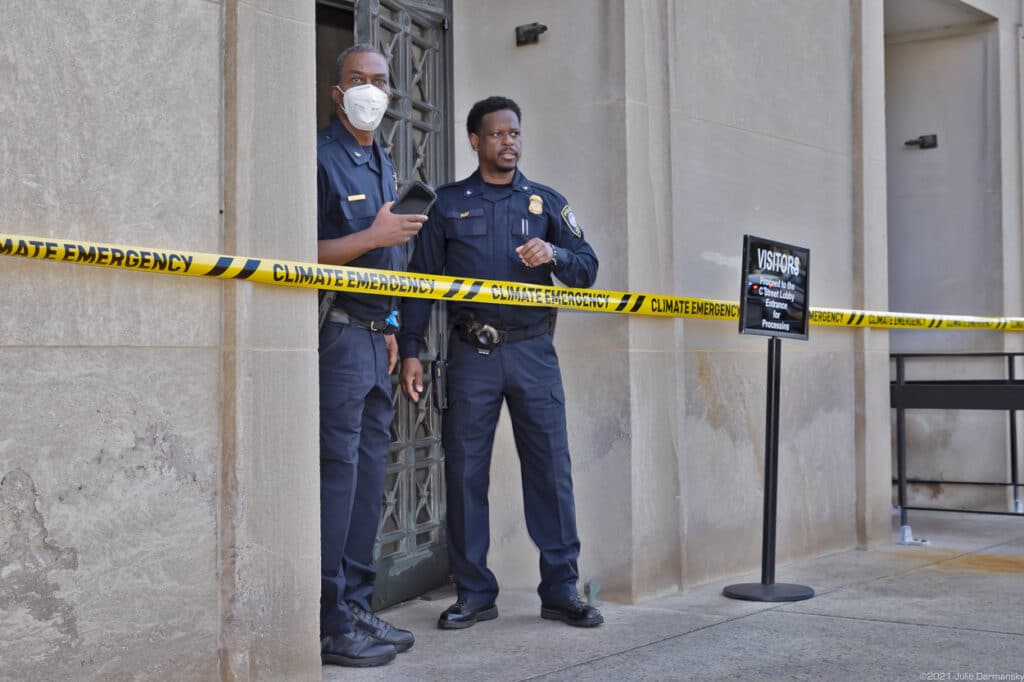
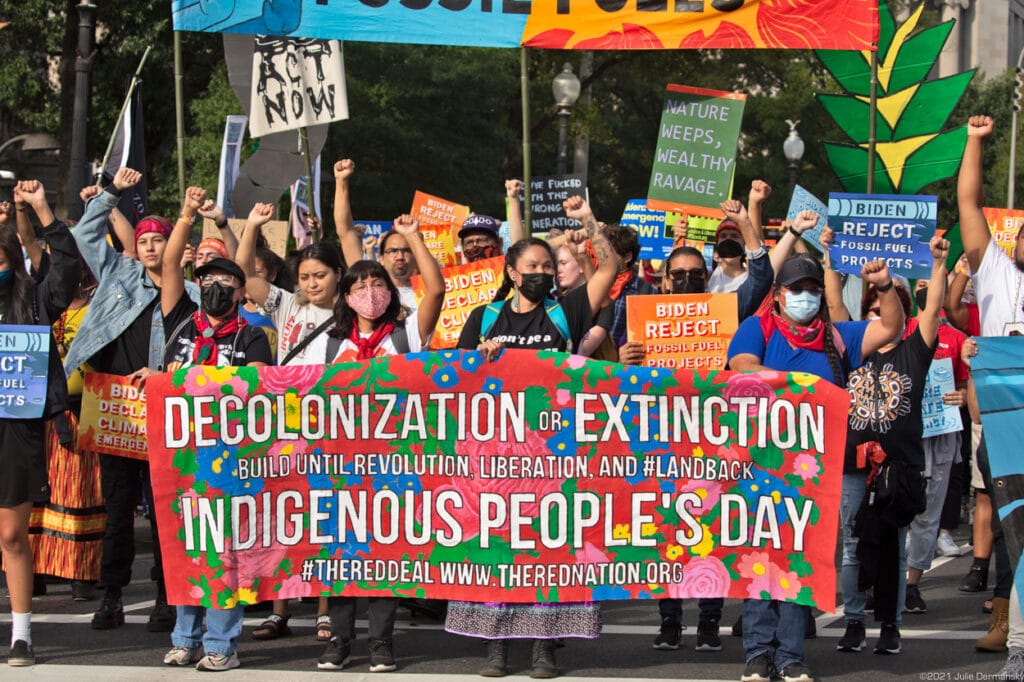
And on the last day of the protest, October 15, further arrests were made when a group of Indigenous youth and their supporters participated in a sit-in at an intersection near the Capitol, blocking traffic and refusing to disperse when ordered to do so by the Capitol Police
At all of the actions last week, activists expressed their rage that Biden has not delivered on climate-related campaign promises, adding that the administration’s plans do not go far enough to protect the planet from the rapidly intensifying climate crisis.
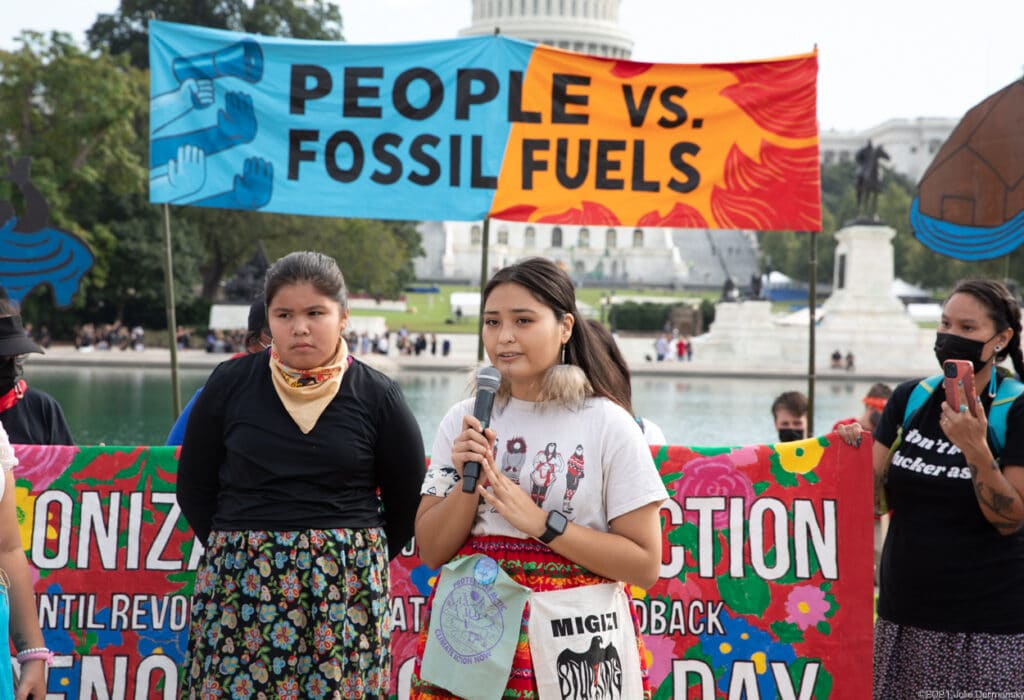
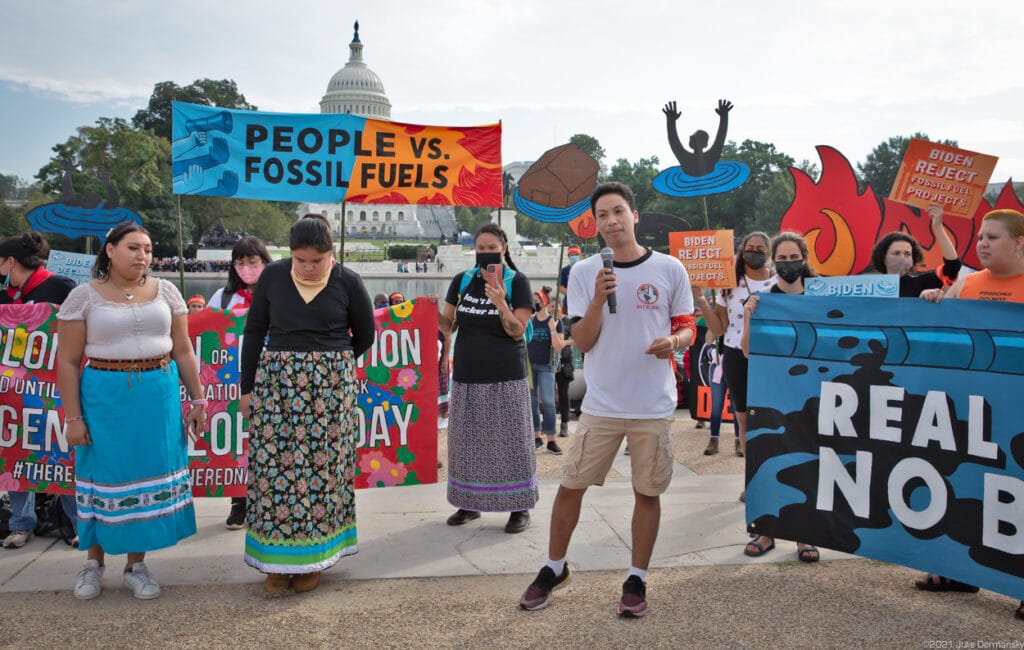
“We need climate action now. We are out of time to address this issue,” said Zanagee Artis, the co-executive director of Zero Hour, a youth-led climate justice organization, during a rally near the U.S. Capitol on October 15. “I campaigned for Biden. I called voters in Philadelphia. Black and brown people voted in droves, young people voted in record numbers for a president who promised action on climate change. Now he has the power to revoke the permits for Line 3 [pipeline] and he has not. He has the power to stop DAPL and he has not. He has the power to revoke fossil fuel leases and he has not.”
A reporter at a White House briefing on October 14 pointed out that hundreds of climate protesters were in front of the White House demanding Biden stop approving fossil fuel projects and declare a climate emergency. The reporter then asked if the administration is considering or listening to their demands.
White House Press Secretary Jen Psaki confirmed that they are listening. “I would encourage anyone out there, or not, to look at what the President is proposing, what he’s trying to push across the finish line at this point, which is an enormous investment and commitment to addressing the climate crisis,” she said.
However, the Indigenous Environmental Network, one of the leading groups behind the five-day protest, has come out against both major pieces of legislation, as previously reported by DeSmog. The network contends that each bill includes some form of fossil fuel subsidies — and that there is no time for a middle-of-the-road approach.
As Biden readies himself to leave for the COP26 United Nations climate summit next month, the planet is on track to warm more than 2 degrees Celsius (3.6 degrees Fahrenheit) above pre-industrial levels. If greenhouse gas emissions aren’t rapidly reduced, scientists warn this level of global warming will likely cause irreversible warming of the planet, leading to increased catastrophic disasters including fires, heat and cold waves, flooding, and the intensifying of hurricanes.
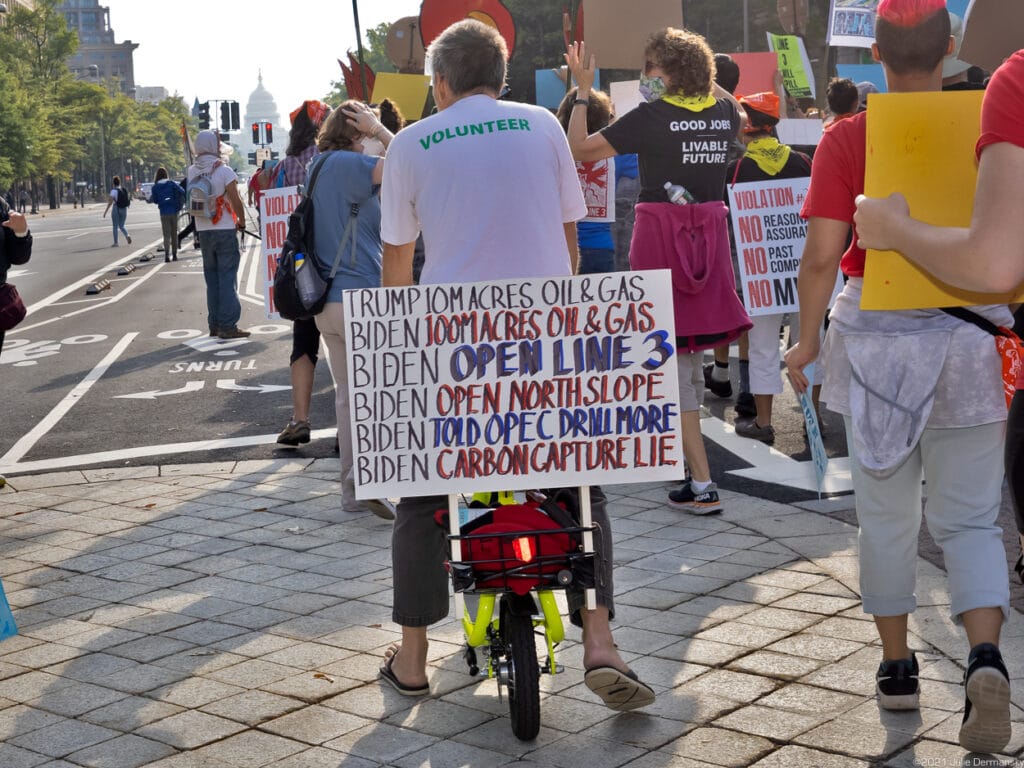
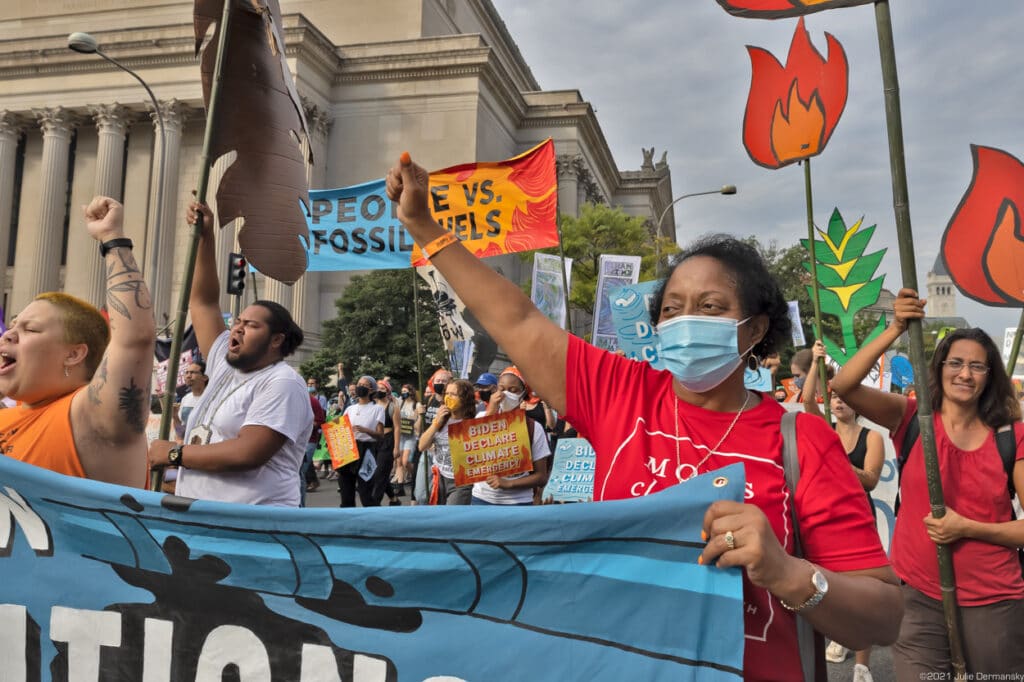
Climate advocates during the D.C. protests warned that time is almost up to implement meaningful change. Sharon Lavigne, founder of community group RISE St. James from Louisiana, shared her firsthand account of what living with worsening climate impacts is like. Hurricane Ida destroyed her roof, which led to flooding inside her home, leaving it uninhabitable.
Many of the speakers during the five days of action highlighted the Biden administration’s failure to reject projects they say he has the power to stop right now, including the Mountain Valley Pipeline, the Line 3 pipeline, and Formosa’s multi-billion-dollar plastics complex in Louisiana, among others.
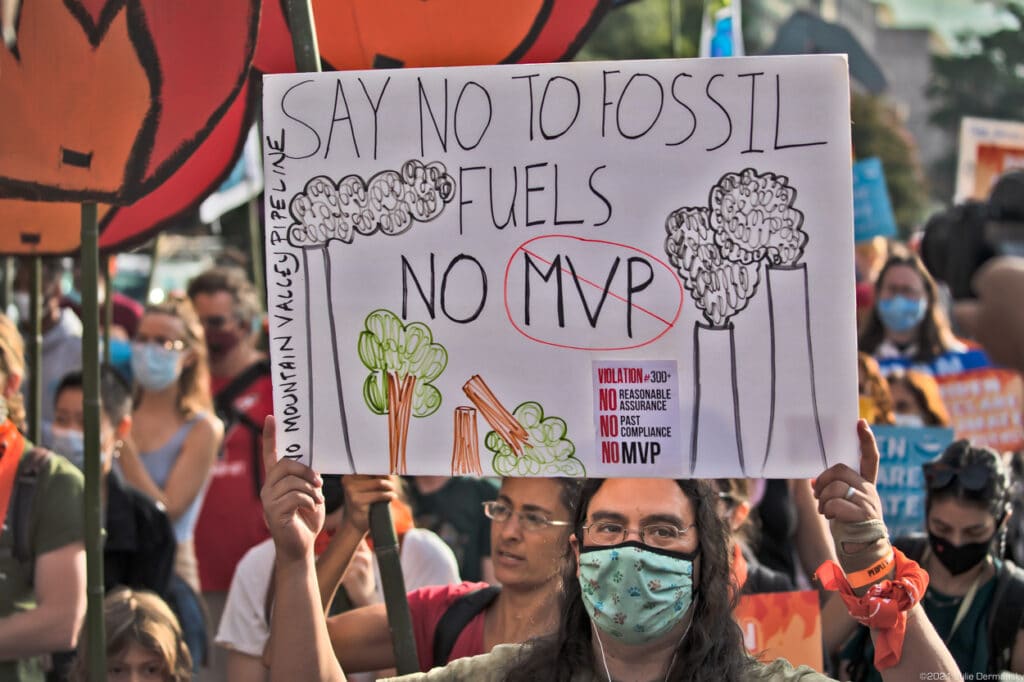
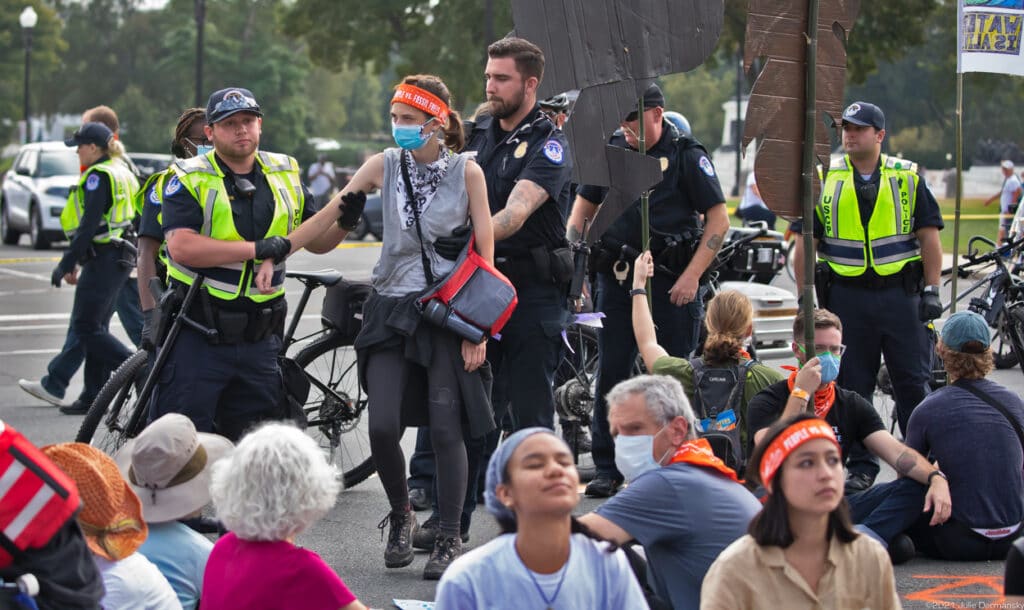
“By refusing to stop major fossil fuel projects, President Biden has broken his promises to protect Indigenous rights, prioritize environmental justice, and fully address the climate crisis,” said an October 15 release from the organizers of the People vs. Fossil Fuels protests. As the press release states, “new analysis from Oil Change International shows that if the Biden Administration moves ahead with 21 major fossil fuel infrastructure projects that are currently under federal review, it would be the emissions equivalent of adding 316 new coal-fired power plants — more than are currently operating in the United States. The total emissions from just these projects would represent 17% of total US greenhouse gas emissions in 2019.”
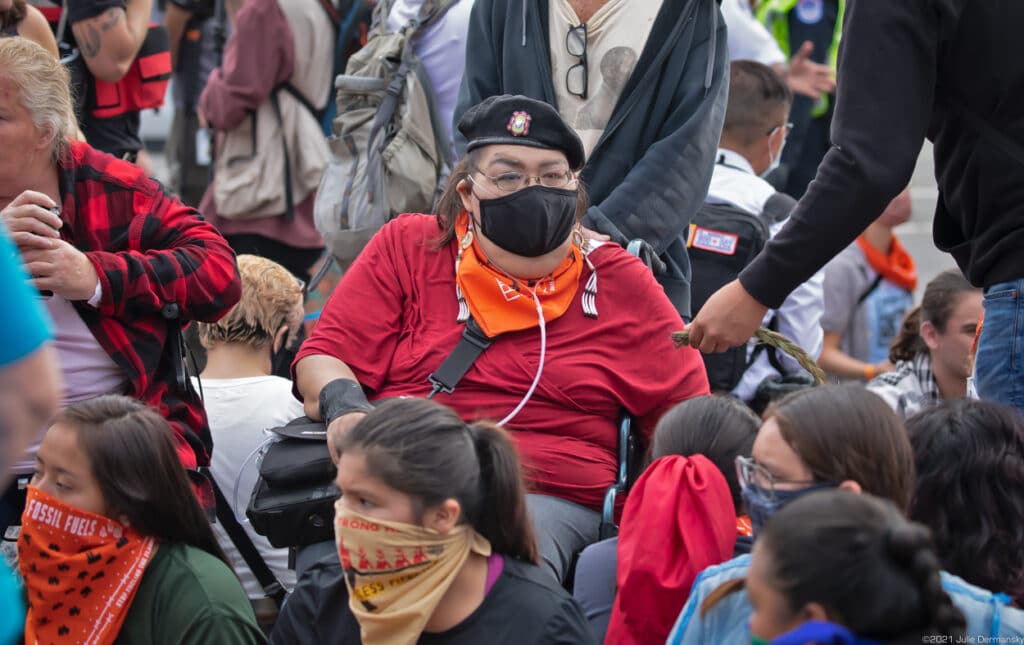
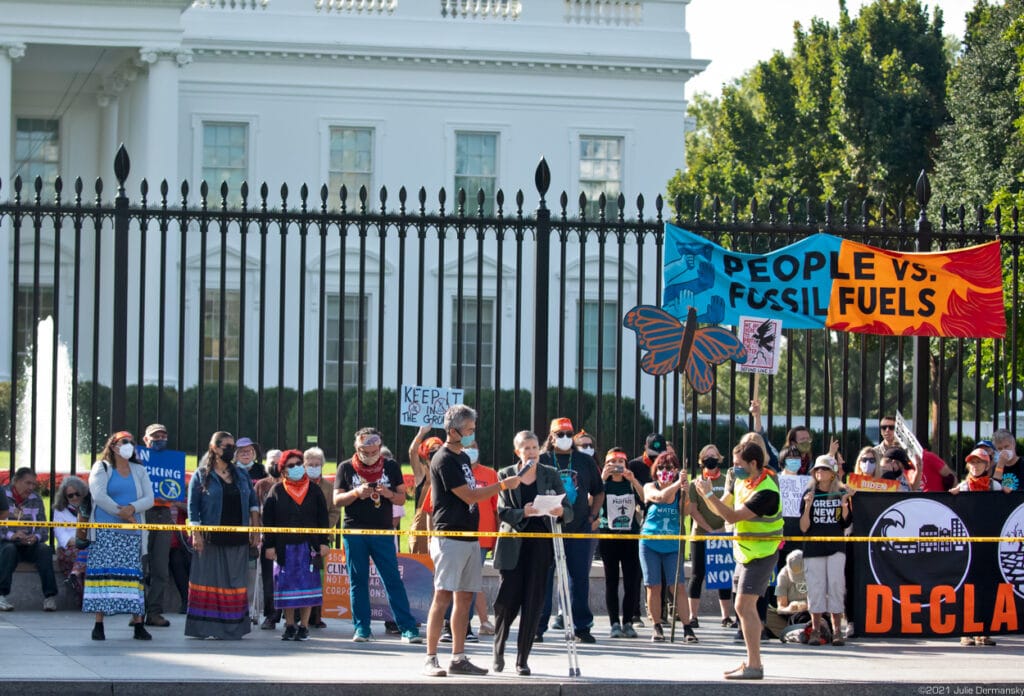
Advocates also warned about false solutions that the Biden administration and other Democratic Party centrists are embracing, such as carbon capture and hydrogen fuel made from natural gas, neither of which are commercially viable technologies. “There is no time for parlor games like blue hydrogen or wolves in sheeps’ clothing like fracking,” Sandra Steingraber, a biologist and author who highlighted the health impacts of living near fracking industry sites, said before she was arrested in front of the White House on October 14. “Or unworkable, fanciful Rube Goldberg–contraptions like carbon capture and storage.”
That same day, on October 14, Louisiana’s Gov. John Bell Edwards welcomed a proposed $4.5 billion blue hydrogen clean energy complex.
The organizers of the D.C. protests have yet to announce their next moves following the five-day action, but the Indigenous activists who were in the streets vowed to do whatever it takes to protect the planet for the next seven generations.
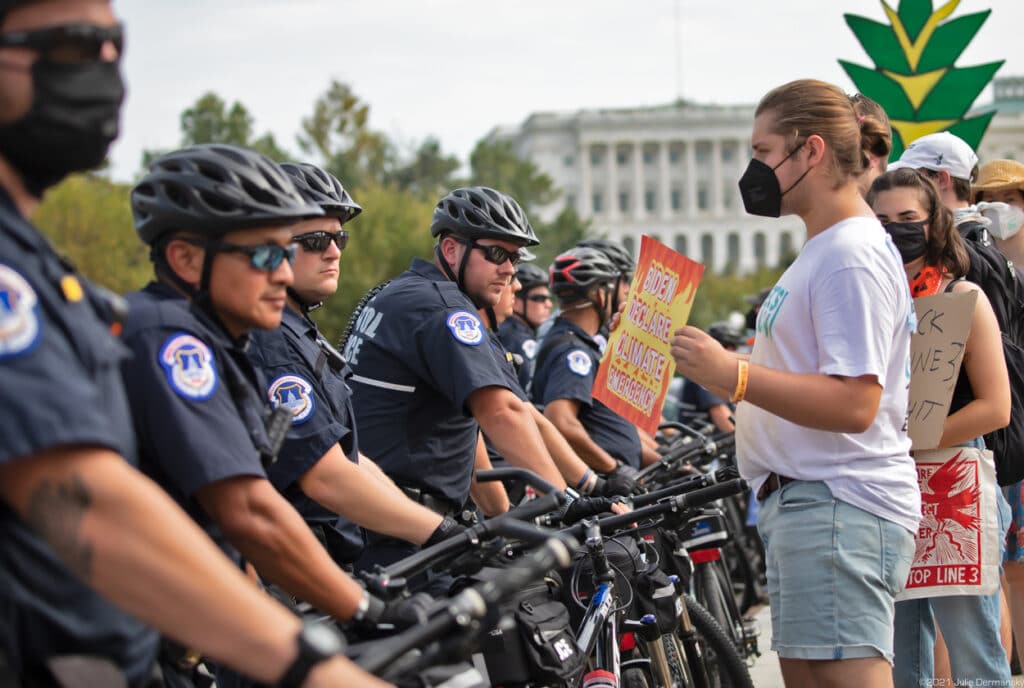
Subscribe to our newsletter
Stay up to date with DeSmog news and alerts


